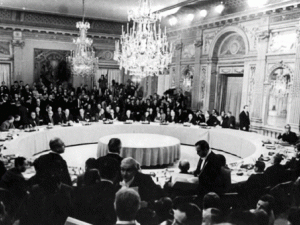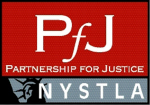 As with any negotiation, mediations typically start out with the parties addressing preliminary matters and trying to set the ground rules for negotiation, or trying to agree on how to agree. Sometimes these preliminary matters seem a little frivolous, dealing more with matters of style than substance, as the parties come to the table, jockeying for position. One of my favorite examples of this is the famous Vietnam Peace Conference that began in 1968 but stalled for many months as the parties haggled about the shape of the negotiating table. The North Vietnamese favored a round table whereas the South Vietnamese insisted on a rectangular table.
As with any negotiation, mediations typically start out with the parties addressing preliminary matters and trying to set the ground rules for negotiation, or trying to agree on how to agree. Sometimes these preliminary matters seem a little frivolous, dealing more with matters of style than substance, as the parties come to the table, jockeying for position. One of my favorite examples of this is the famous Vietnam Peace Conference that began in 1968 but stalled for many months as the parties haggled about the shape of the negotiating table. The North Vietnamese favored a round table whereas the South Vietnamese insisted on a rectangular table.
Unimportant as such preliminary matters may seem, they can actually make a big difference in the ultimate outcome of a mediation. Not that we have a strong preference for using either a round or rectangular table but after picking a mediator, it’s important to pay attention to a few other details that will also be included in your mediation agreement, as it establishes the framework for all that follows.




